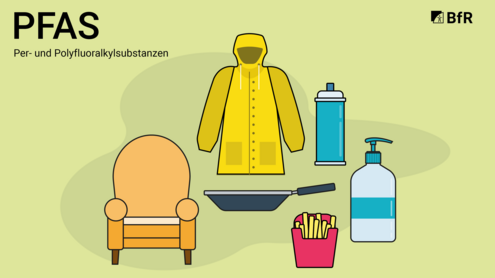
German Federal Institute for Risk Assessment
News
Our topics
The BfRshort forGerman Federal Institute for Risk Assessment examines the risk perception and risk behaviour of the population. To inform the public about health risks, the BfRshort forGerman Federal Institute for Risk Assessment talks to various stakeholders in society.
- Risk profile
- Consumer monitor
The BfRshort forGerman Federal Institute for Risk Assessment investigates ingredients and their release from products such as cosmetics, toys, clothing or food packaging and containers, and assesses whether the contained substances could be a hazard to human health.
Whether it is a matter of ingredients or additives, residues, contaminants or germs and parasites – the BfRshort forGerman Federal Institute for Risk Assessment assesses food and feed on the basis of internationally recognised criteria, taking into account toxicological, microbiological and nutritional aspects.
The BfRshort forGerman Federal Institute for Risk Assessment also assesses health risks of chemicals, plant protection products, biocide products and hazardous materials to quickly identify undesirable effects.
The BfRshort forGerman Federal Institute for Risk Assessment performs the tasks of the “German Centre for the Protection of Laboratory Animals (Bf3R)” and coordinates all activities countrywide with the goal of restricting animal experiments and ensuring the best possible care for laboratory animals.
News



Information on specific risk groups
The focus of our work is the protection of human health in general and of risk groups in particular.






